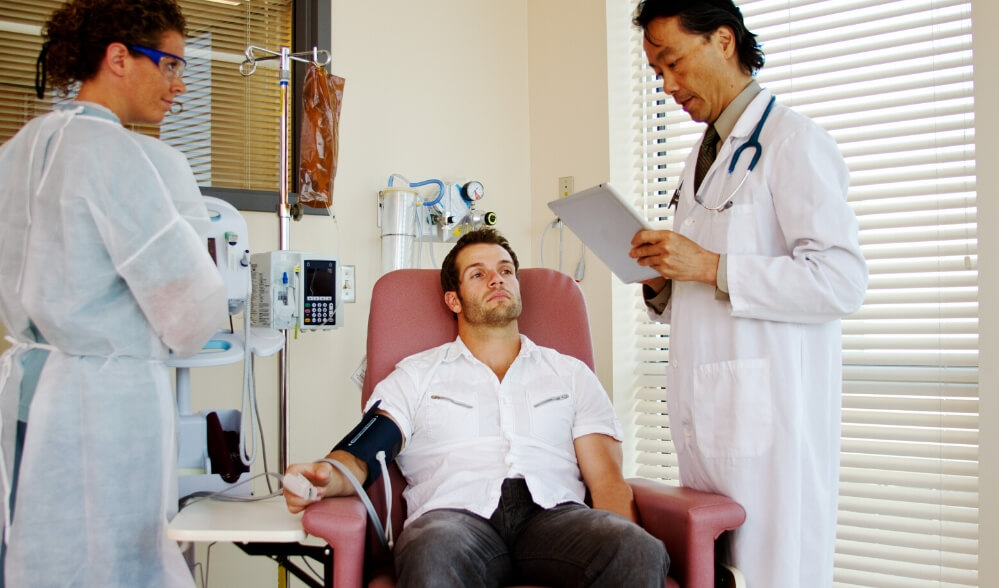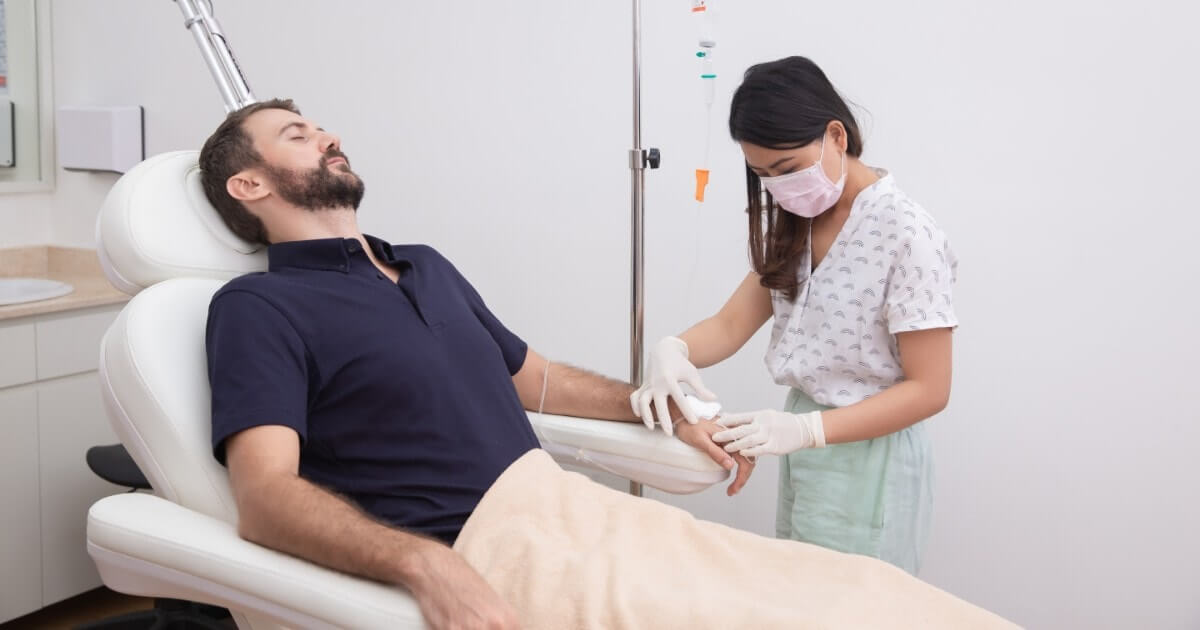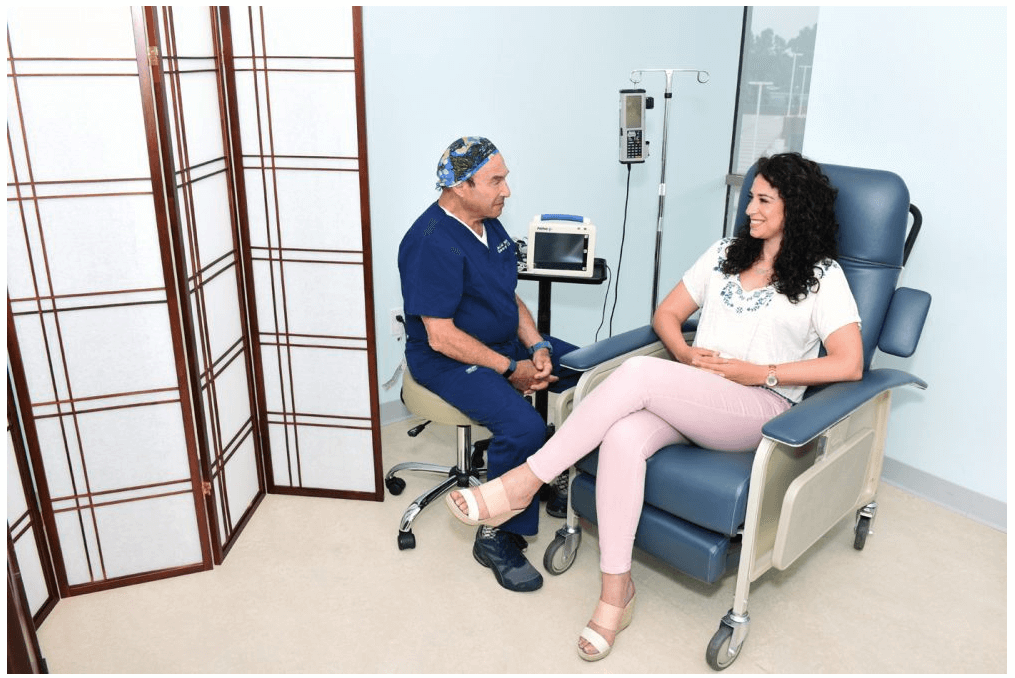
Signs of Brain Injury After Car Accident
The cause of Traumatic brain injury (TBI) after a car accident is usually by sudden brain damage from a head injury. Car or motorcycle accidents, falls, sports injuries, and assaults are all common causes. The severity of the injury can vary from mild concussions to permanent brain damage. Treatment for mild TBI can include medication and rest, but severe TBI could require intensive care or life-saving surgery. Surviving brain injuries can have lasting effects on survivors’ physical, mental, and emotional abilities. Most people who have suffered a moderate or severe TBI require rehabilitation to recover their skills and regain their abilities.
What Is a Traumatic Head Injury?
The cause of TBI is usually due to blunt or penetrating head trauma. Primary injury is the injury that occurs immediately after impact. Primary brain injuries can affect a particular lobe or the entire brain. The skull can be fractured, but it is not always the case. During an accident, the brain bounces back and forth within the skull, causing bruises, bleeding, and nerve fiber tears. Immediately after an accident, the person could be confused, unable to remember what happened, dizzy, or lose consciousness. The person’s condition may initially appear fine but can rapidly deteriorate. After the initial trauma, the brain experiences a delayed injury – swelling. It pushes itself against the skull, reducing oxygen-rich blood flow. It is called secondary damage and is often more harmful than the initial injury.
The severity of the injury and its mechanism are used to classify traumatic brain injuries.
- Mild: The person is awake, and their eyes are open. The symptoms can include confusion, disorientation, and memory loss. They may also cause headaches or a brief loss of awareness.
- Moderate: A person is unresponsive; eyes are open. Consciousness loss lasting from 20 minutes to six hours. Sleepiness due to brain swelling or bleeding, but still awake.
- Severe: A person is unconscious and cannot open their eyes, even when stimulated—more than six hours of unconsciousness.
Types of Traumatic Brain Injury After Car Accident
Traumatic brain injuries (TBIs) are a common result of car accidents, which can have significant physical, cognitive, and emotional consequences. The severity and specific type of TBI can vary based on the nature of the accident and the forces involved.
Concussion
A mild head injury, a concussion can cause temporary unconsciousness and does not usually cause permanent brain damage.
Contusion
A contusion is a bruise on a specific part of the brain that occurs when you hit your head. It can also be called coup or contrecoup injuries. In coup injuries, brain tissue is damaged directly below the impact area. In contrast, in contrecoup injuries, it is injured to the side opposite of the impact.
Diffuse Axonal Injury
Diffuse Axonal Injury (DAI) is the shearing and tearing of nerve cells on a cellular level. The brain moves quickly inside the skull, tears, and damages the nerve axons. Axons are like telephone lines that connect nerve cells throughout the brain. Axonal damage can disrupt the brain’s standard information transmission and cause a significant change in someone’s waking state.

SCHEDULE A CONSULTATION
Experience a pain-free life! Call us at (727) 268-0172
Traumatic Subarachnoid Hemorrhage (TSAH)
TSAH is bleeding in the space surrounding the brain. This space is filled with CSF, which acts as a cushion for the brain. The cause of traumatic SAH is due to small arteries rupturing during an initial injury. The blood spreads across the surface of your brain, causing wide-ranging effects.
Hematoma
Hematomas are blood clots that form when a vessel ruptures. Blood that has escaped the regular bloodstream begins to thicken and clot. Clotting is a natural way for the body to stop bleeding. The hematoma can be small or grow to be large and compress the head. The symptoms vary according to the location of the blood clot. Epidural hematoma is the name of a clot that forms between the skull lining and the dura. Subdural hematomas are clots that form between the brain and the dura. An intracerebral hematoma is the name of a clot that forms deep in brain tissue. Over time, the body will reabsorb the clot. Doctors may need to remove large clots surgically.
A person with a traumatic brain injury after car accident may suffer a combination of injuries that are all of varying severity. It is difficult to answer questions such as “Which part of the head is injured?” because more than one area may be involved.
What Are the Symptoms?
The symptoms of a person with a traumatic injury can include:
- Consciousness loss
- Confusion and disorientation
- Memory loss / Amnesia
- Fatigue
- Headaches
- Visual problems
- Attention/concentration problems
- Sleep disturbances
- Dizziness/loss of balance
- Irritability/emotional disturbances
- Feelings depression
- Seizures
- Vomiting
Diffuse brain injuries, such as concussions or diffuse axonal injuries, usually cause a general loss of consciousness. Focal injuries (such as an ICH or a trauma) have symptoms based on the area of the brain affected.
Each patient is different, and specific injuries may affect more than one part or area. It can be challenging to predict the particular symptoms that a patient will experience.
What Are the Available Treatments for TBI?
Mild traumatic brain injury after car accident is usually treated with medication and rest to reduce headaches. Hospitalization is required for moderate to severe TBI. Swelling and bleeding in the brain may require surgery. There are instances when a patient doesn’t need surgery and can be monitored safely by doctors and nurses in the Neuroscience Intensive Care Unit (NICU).
Treatment aims to support and revitalize the critically ill, reduce secondary brain injuries and complications, and facilitate the patient’s transition into a recovery environment. Doctors have only been able to control swelling in the brain but not eliminate it.
Studies About Ketamine for TBI
Recent studies have shown that ketamine may help to reduce increased intracranial pressure (ICP). One study published in Critical Care Medicine in 2019 found that ketamine reduced ICP in children with TBI. The study involved 20 randomly assigned children to receive either ketamine or a placebo. The children who received ketamine had a significantly lower ICP than those who received the placebo.
Here are some other studies on the use of ketamine for TBI:
- A study published in the journal Neurosurgery in 2017 found that ketamine could help to improve the outcome of patients with severe TBI.
- A study published in the journal Journal of Neurotrauma in 2018 found that ketamine could help to reduce the risk of seizures after TBI.
- A study published in the journal Brain Injury in 2021 found that ketamine could help to improve cognitive function after TBI.

Book a Consultation
If you or a loved one is seeking alternative treatment options for traumatic brain injury after car accident Florida Medical Pain Management offers Ketamine infusion therapy as a potential solution. Ketamine infusion has shown promising results in helping individuals with TBI manage their symptoms and improve their quality of life. Discover the potential of Ketamine infusion therapy for TBI and embark on a path toward healing and recovery. Contact us today!
Our Treatment Services
Florida Medical Pain Management’s top priority is to serve our patient’s needs and create long-lasting relationships with them. Our treatments include:
- Treatment for Neuropathy
- Arthritis Management
- Back Pain Medication
- Chronic Pain Treatments
- PRP Injections
- Epidural Injection
- Regenerative Medicine
- Hip Pain Medication
- Ketamine Infusion Therapy
We want to help patients live more fulfilling and productive lives by effectively managing their pain. Florida Medical Pain Management also provides home therapy and many more. Click here to see our other services.















